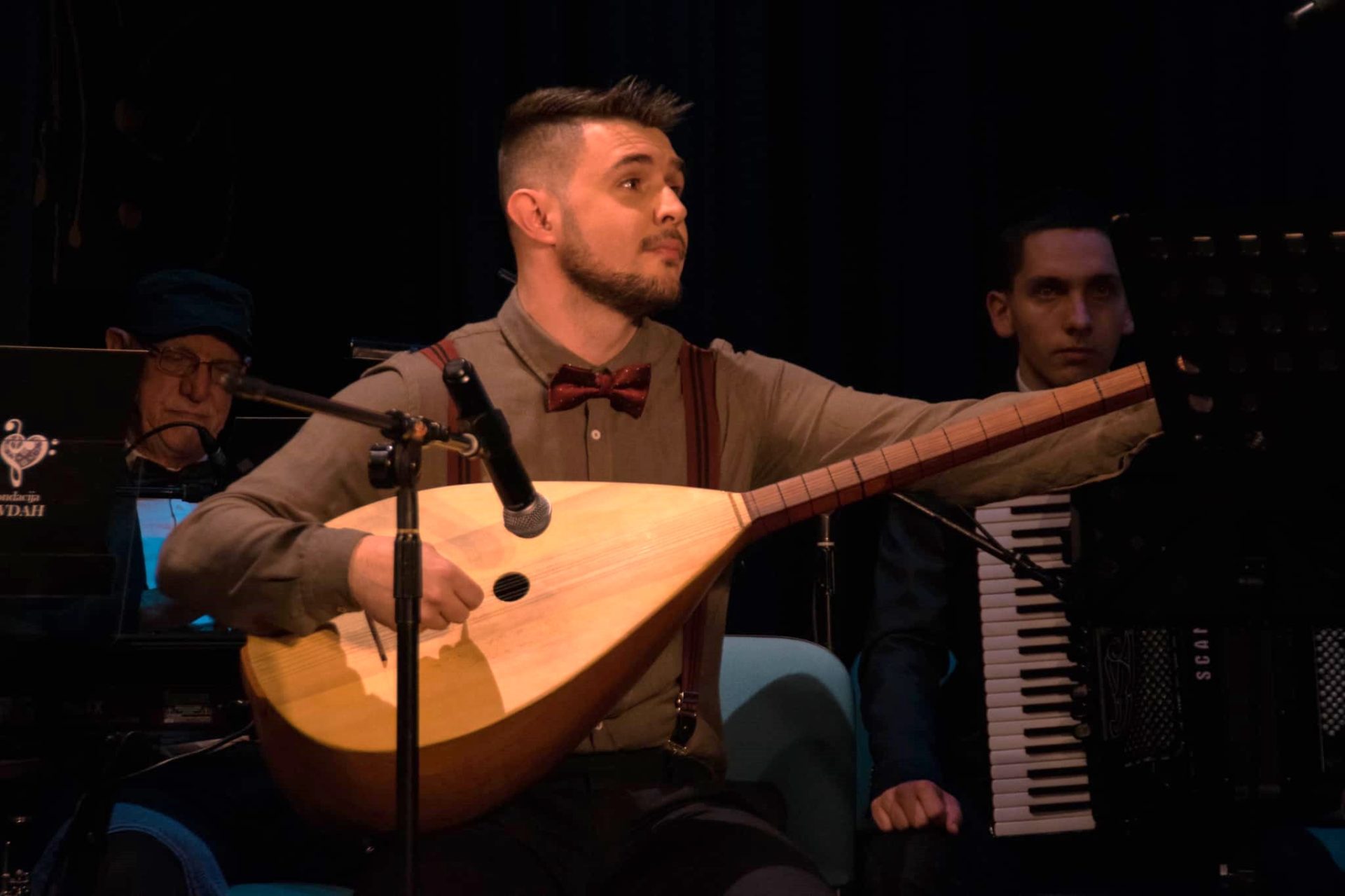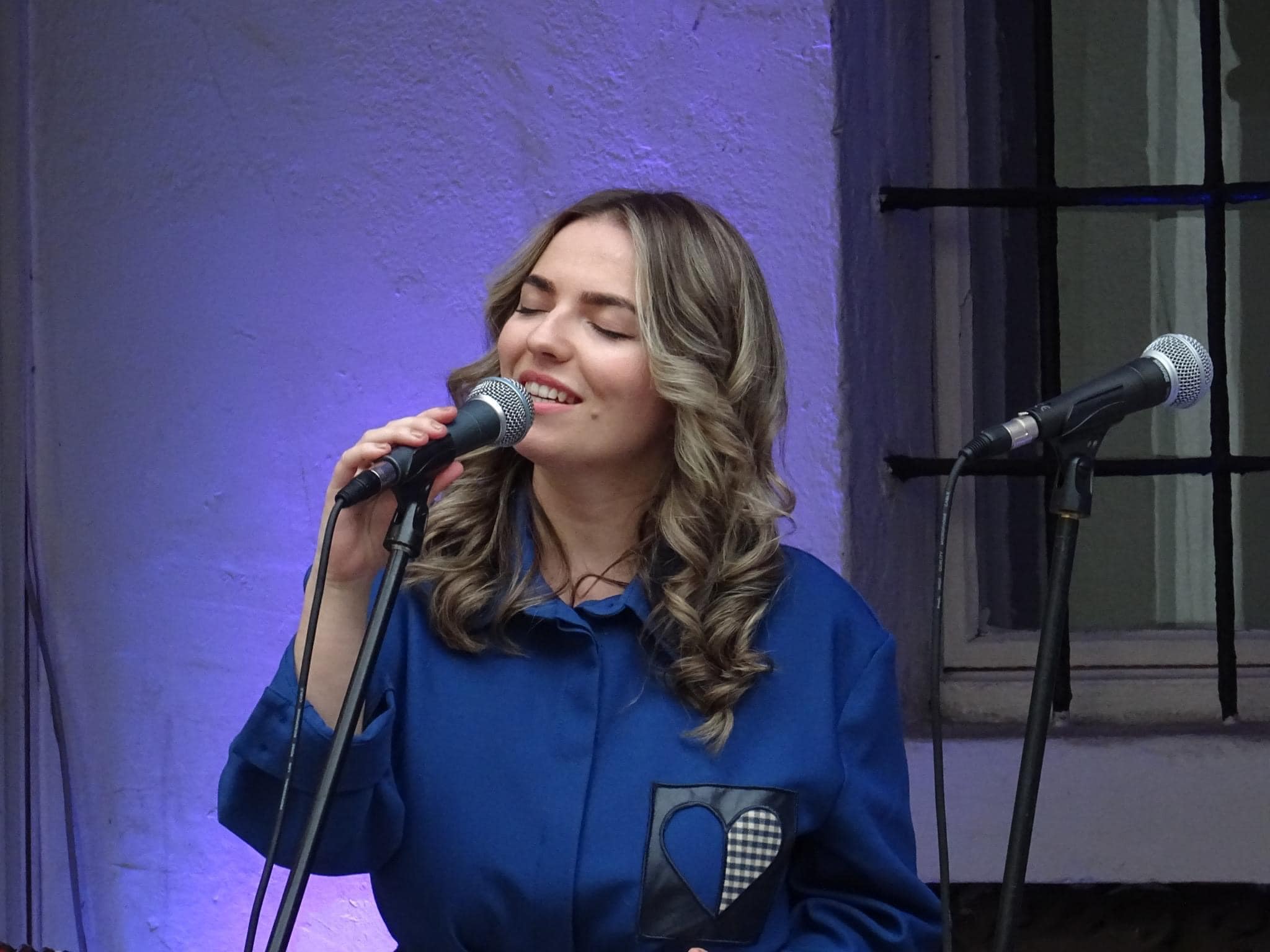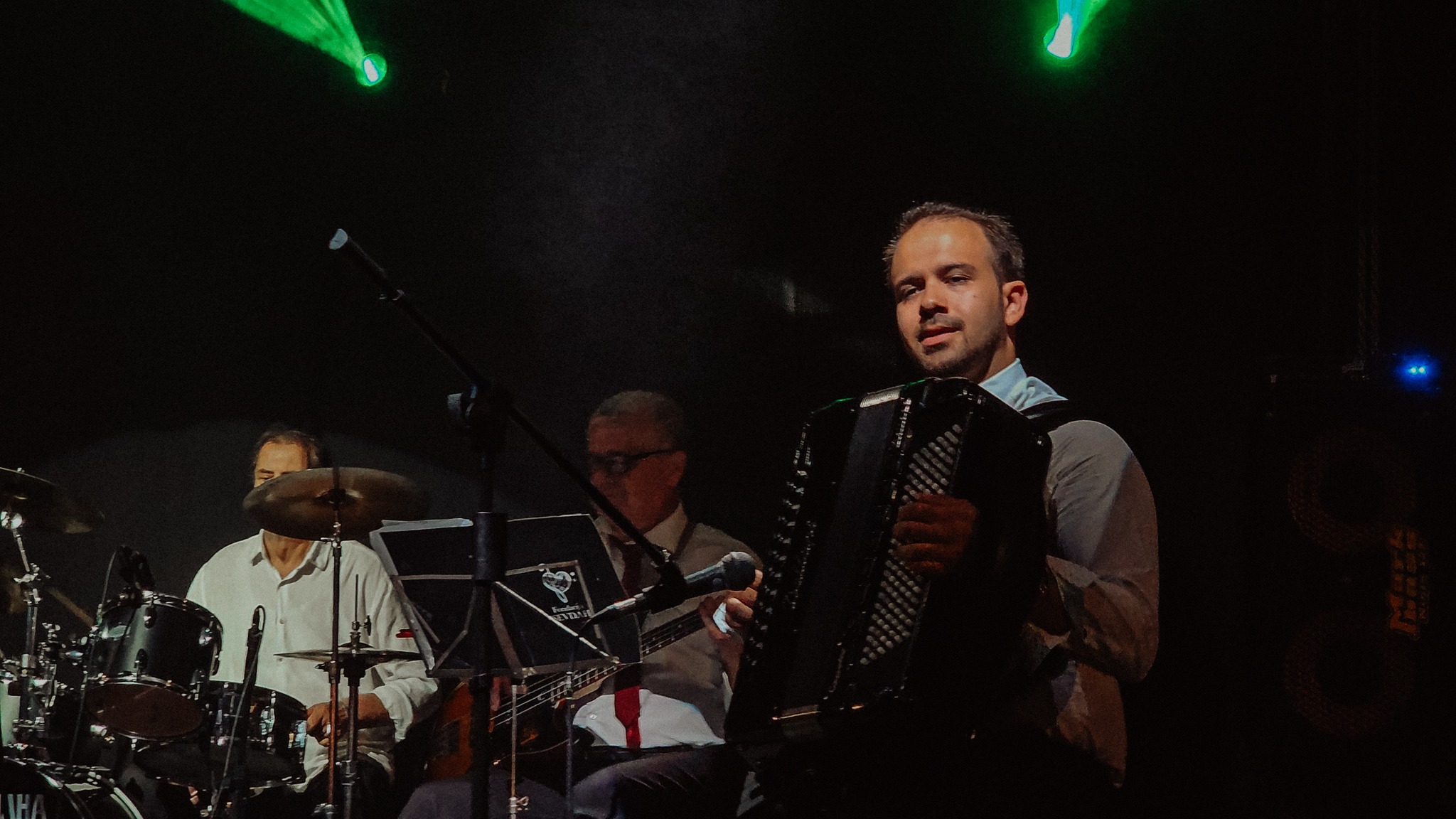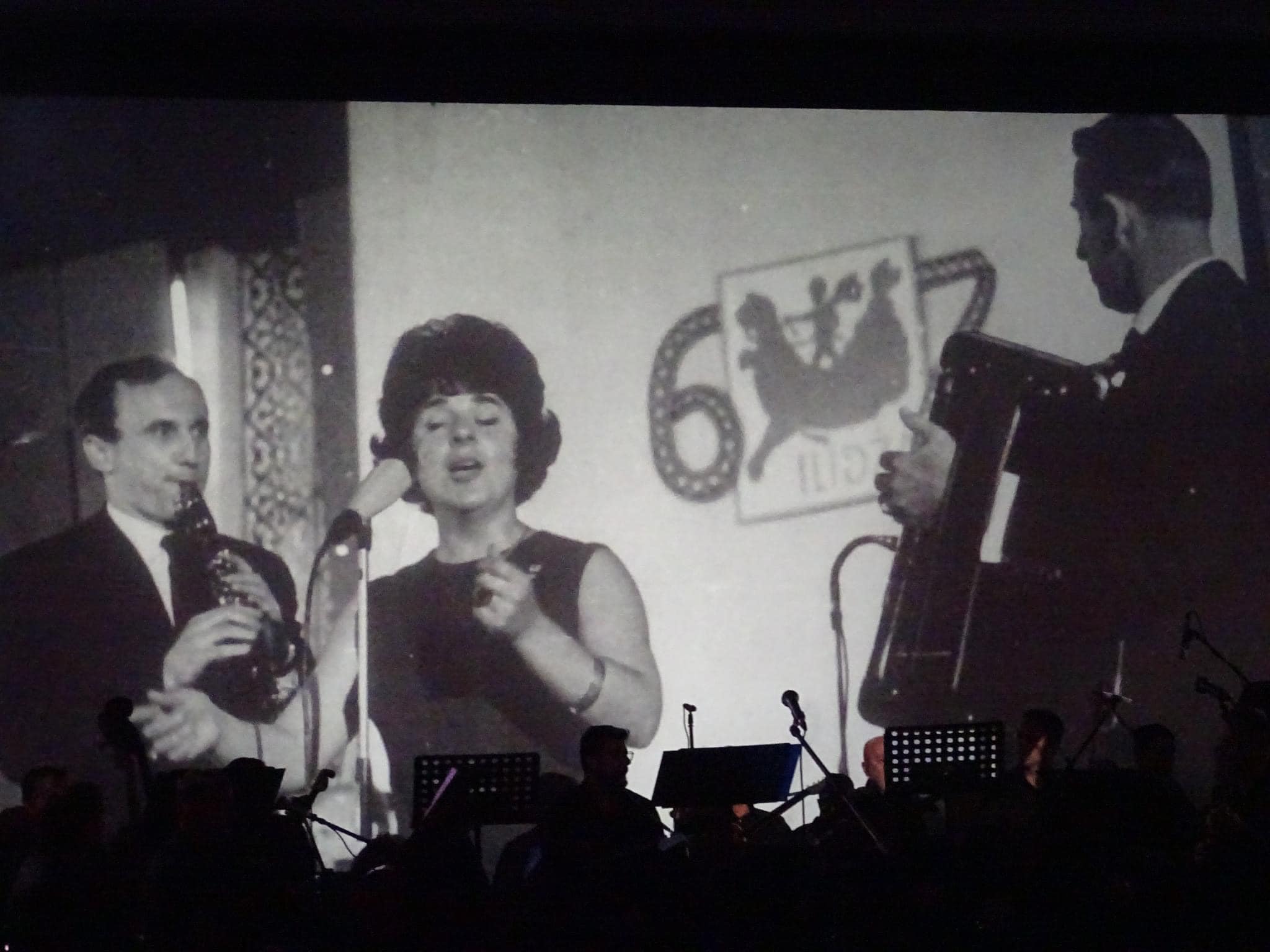
The Sevdah Foundation is an association of music professionals and creators dedicated to preserving and nurturing the Bosnian folk music tradition of Sevdalinka. Young people, determination, knowledge, and enthusiasm are the main resources and the driving forces at the center of their work.
Ethnomusicologist Damir Galijašević, founder and director of the Sevdah Foundation, explained that through the project Sevdah of Bosnian Podrinje, they have curated around 60 of the most beautiful Sevdalinka classics by renowned composers of the genre, as well both traditional and original melodies from the Podrinje region. The project includes audio recordings featuring young as well as prominent interpreters and esteemed performers from the Bosnian Podrinje area, and is accompanied by a book containing musical notations, lyrics, historical sources, and portraits of notable Sevdah performers from the region.
“Our aim is to gradually encompass and thoroughly explore the entire Sevdah territory in this manner,” said Galijašević. He emphasized that special attention has been given to the traditional Bosnian instrument known as the saz, which was once a common accompaniment in Sevdalinka music and has been experiencing a revival in recent years. They have released an album featuring the masterful saz player Rajko Simeunović from Bijeljina, and there are plans to release an album by another prominent saz player, Avdo Lemeš.
The promotion of talented young Sevdah interpreters is also a focal point for the foundation. Its digital platform features an album by the young Emina Grahić, one of the most refreshing Sevdah surprises today. An album by Alma Subašić has also been recorded in collaboration with the music production team of the radio and television broadcast service of Bosnia and Herzegovina.
Galijašević proudly predicts that “with ten traditional songs and one new addition, featuring specific arrangements and interpretations of Sevdalinka with accordion, piano, orchestra, saz, and violin, this album will undoubtedly push the boundaries of Sevdah.”
He observes that the popularity of Sevdalinka today is considerable, which can be largely attributed to a plethora of Sevdalinka interpreters adapting this music to contemporary times. These include Damir Imamović, Amira Medunjanin, and the Divanhana ensemble, among others.
“Their individual international successes have allowed us here to rediscover the true beauty we have in our Sevdalinka, the greatest cultural treasure of Bosnia and Herzegovina,” said Galijašević.

Youth Interest
Interest in Sevdalinka among young people is evident. Galijašević notes that they often hear from young interpreters as well as students and researchers of the musical genre from all over the world. Via social media and email, they receive requests for assistance with better interpretive accompaniment or in accessing archival resources for academic use.
“The audiences at our concerts include young and old Sevdah enthusiasts alike,” says Galijašević, recalling seven concerts held in various cities of Bosnia and Herzegovina, including Goražde, where young people filled the front rows.
Comparing Sevdalinka’s standing to other traditional folk genres worldwide, such as Chanson, Canzone, and Fado, Galijašević believes that Sevdalinka has its place and isn’t lagging behind others. “This has yet to be confirmed with Sevdalinka’s inclusion on the UNESCO list of intangible cultural heritage. The selfless and substantial dedication of the Sevdah Foundation is crucial in this effort,” he adds.

The Sweetest Remedy
Reflecting on how people can contribute to the popularization of Sevdalinka, Galijašević says that it’s enough to love and enjoy the music. He acknowledged the need for greater media focus on Sevdalinka, emphasizing the potential benefits of backing from a major media outlet, as was the case with Radio-Television Sarajevo during its peak.
At the end of the conversation, Galijašević addressed a message to all Sevdah enthusiasts: “I’d like to end with a verse by the legendary Joza Penava, one of the most important song-writers of the Sevdalinka tradition: ‘Sevdah isn’t the murky Drina that leaves devastation in its wake, but rather the sweetest remedy for those who ail to heal! May Sevdah be our remedy, forever!’”







